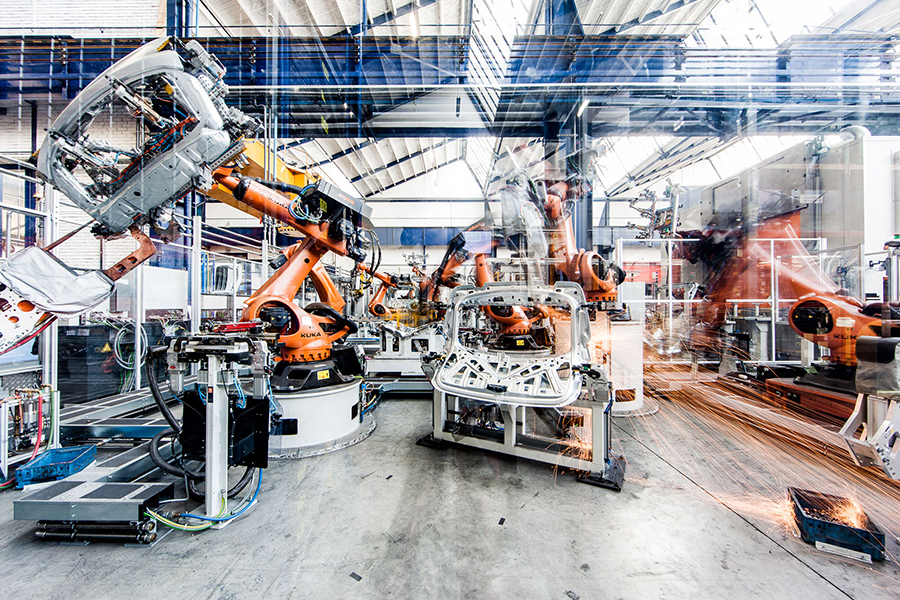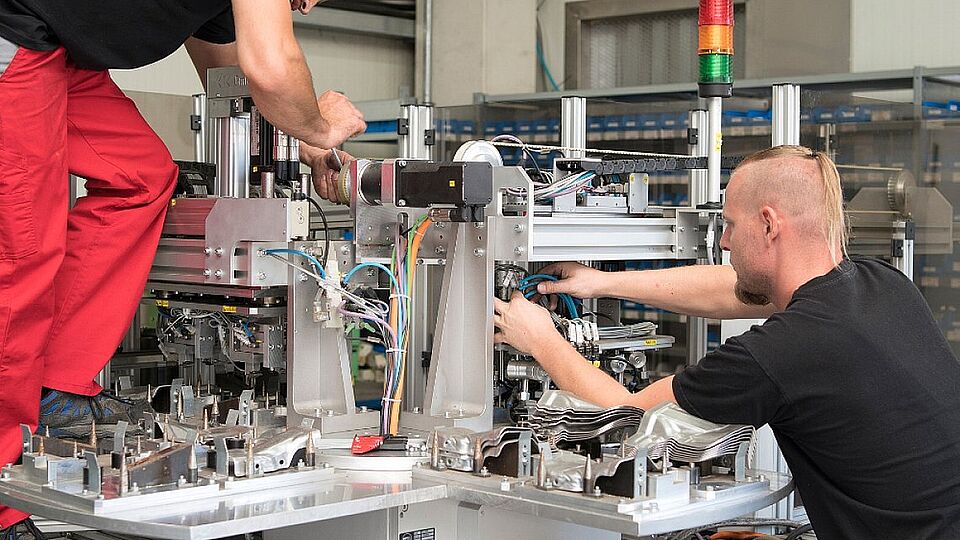The ERP system also played a central role here. In order to make the needs assessments more precise, the company and its ERP consultants developed a small but nice additional functionality: the framework production order.
Large series order from premium OEM
Läpple Automotive is the largest company within the internationally positioned Läpple Group and a leading supplier of aluminum outer skin components and sheet metal forming in the premium segment. What that means? The company supplies manufacturers such as BMW, Porsche, Audi and Mercedes - with simple reinforcement parts, but also with complex assemblies such as doors, hoods, side panels or complete front sections. With more than 16,000 tools for the production of over 250 series, Läpple Automotive also plays an outstanding role in the replacement parts market.
Läpple Automotive recently received one of the largest orders in the company's history: six items or assemblies - side and base parts as well as structural elements - will be manufactured in the Heilbronn factory with a lead time of just a few days and over several years. However, large-scale orders of this size have so far been anything but typical for the luxury segment - and production was therefore not optimized for this. This is exactly what the IT managers did in this context - under the leadership of Hans-Peter Rudolph, IT project manager at Läpple Automotive:
Above all, Läpple Automotive wanted to optimize its stocks of raw materials. This required a more precise determination and transfer of requirements to suppliers.
Precise determination of requirements thanks to framework production orders
This was successful with a simple expansion of the ERP system-the so-called "frame production order"-combined with the introduction of a Kanban visualization board for post-production and automation of some partial processes. "Basically, our solution approach is only an administrative trick, but with considerable savings as a consequence," adds Rudolph. In fact, this framework only forms a kind of "bracket" to call from a higher -level customer order and the production orders generated from it. However, the employees no longer book the individual production orders from the regular, partly daily, but the overarching frame production order.
The delivery call-offs from OEMs were previously automatically summarized into a practical production batch size and mapped into a production order in PSIpenta. However, the employees had to log into the system every day and provide feedback on the correct order - including a printed accompanying document as a basis for the necessary feedback in the production hall. In addition, the needs assessments were no longer precise enough given the large-scale order.
A blanket production order is currently created once a month and therefore corresponds to the required quantity for one month. An automated control loop ensures that when a good quantity report is reported - i.e. when a finished item is reported - the blanket production order on the one hand reduces the oldest production order by the identical number of pieces and on the other hand generates the corresponding warehouse receipt. If a production order finally reaches lot size “0”, it is automatically deleted. The individual production orders therefore continue to form the basis for the actual scheduling in PSIpenta - for example for the specific requirements reports to the raw material suppliers. But these exactly correspond to the needs of a retrieval.
An ERP system for the future
The frame production orders have now been fully rolled out at the Heilbronn plant. In particular, the much more precise determination of requirements in purchasing and the pressing plant is having an impact: Those responsible are expecting a reduction in inventory of over 30 percent in the long term. Reducing batch sizes enables more precise planning with suppliers. The elimination of order checks and approvals in scheduling significantly reduces the workload on employees.
You now only have to log in to the system cyclically and no longer book each individual production order, but rather the higher-level framework. The comparison of product stocks is self-regulating. This not only eliminates the need for accompanying documents for each production order, but above all, production planning is massively reduced.
In addition to the results, what particularly convinced those responsible was that these additions only required minor adjustments to the PSIpenta source code - thanks to the system's flexible data structure.
Die Einfachheit und Schnelligkeit, in der die Anpassungen vollzogen werden konnten, sind in der Branche und in diesem Segment etwas Besonderes, wenn nicht gar ein Alleinstellungsmerkmal unseres ERP-Lieferanten.
PSIpenta at the Läpple Group
By the way, PSIpenta has been in use in the Läpple Group since 1998. 800 users alone use the system at Läpple Automotive. There it maps the entire process chain – from order receipt to shipping and invoicing. Other systems are also connected via interfaces - such as SAP financial and asset accounting, a CRM system from Microsoft or archiving solutions from PSI partner Intex. Hans-Peter Rudolph: “You can basically say that our IT, especially the ERP system, has constantly changed with us over the years, has helped us through one or another trough and, above all, has grown with us. Looking back, we made the right decision back then. Because you can't easily replace an ERP system. This makes factors such as the scalability and flexibility of the solution and of course the manufacturer itself all the more important.”


